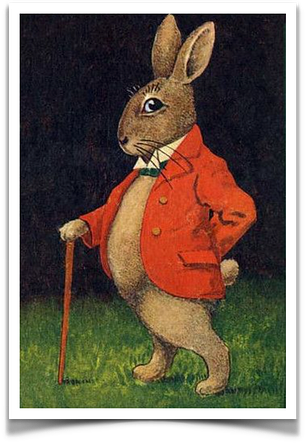Feake Hills, Crooked Waters - The falling issue
SeasoningThere are a lot of ways of marking the seasons. Now that it’s past Labor Day in the US, the summer season is over. At least one kind of summer season is — the season marked by school vacations and the country’s administrative calendar. But there’s also an astronomical summer that lasts from the summer solstice to the autumnal equinox. An equinox — there are two every year — has to do with the equator. The earth’s axis is tilted relative to the (imaginary) plane of the solar system, so as we orbit the sun, it rises at different points along the horizon. When it rises exactly at the equator, that’s an equinox. When it’s rising a bit farther south every morning and passes the equator, that’s the autumnal equinox. When it’s on the other side of its orbit and it rises a bit farther north every morning, it’s the vernal equinox when it’s right at the equator. Besides equinoxes, there are solstices too — a solstice is when the sun appears as far north or south in the sky as it can, relative to where you are on Earth. “Solstice” also means the day that happens, so in the Northern Hemisphere the summer or June solstice is the longest day of the year, and the winter or December solstice is the shortest. In the Southern Hemisphere they’re reversed, obviously. I’ve heard it has something to do with everything in Australia being upside-down, or something like that. Anyway, the astronomical summer begins at the solstice and ends at the equinox — which this year is September 23. That’s a fairly significant date, astronomically speaking. In 1846, the planet Neptune was discovered by a trio of astronomers: Urbain Le Verrier, John Couch Adams, and Johann Gottfried Galle. Johann Encke, a German astronomer, was born in 1791. And William McCool, the pilot of the NASA space shuttle Columbia, was born in 1961. He was piloting Columbia when it broke up during reentry. The things that seemed most important in 1864, at least as recorded in Chambers’ Book of Days, were the births of Karl Theodor Körner in 1791 (he was a German poet) and William Upcott in 1779 (he was known as the “king of autograph collectors”). That same year, 1779, was when the American captain John Paul Jones sailed a squadron of warships to England and battled some British naval ships (the Battle of Flamborough Head). Jones’ flagship, the Bon Homme Richard, sank, but Jones won the battle. He had captured the British ships and took command from one of them, the Serapis. In the words of Chambers, Jones “came and insulted the coasts of Britain.” The only other September 23 event that Chambers found noteworthy in 1864? A mystery from 1673. That was the day Paul Bowes, from “Middle Temple,” wrote in his diary that several times he had discovered in his study, that someone had left a twenty shilling gold piece on his table. He never found out where the coins came from, although Chambers speculated that Bowes’ “Grandmother Langton” had left the money for him, because “the writer has known more than one instance of benevolent old ladies making presents of money to young relatives, in a similarly stealthy and eccentric manner.” It’s pretty strange to see the things that seemed important in 1864. Tales from the Forest“Hey Squirrel,” said Beaver, “do you remember the party in the barn?” “Of course I do,” said Squirrel. “Everybody does.” “You didn’t happen to hear what Masie and Hortense were talking to me about, did you?” asked Beaver. “No,” said Squirrel, “I saw you talking to the cows but I was playing tag with Fox and the others.” “Too bad,” said Beaver. “I’m trying to make some notes about everything they told me about. It was fascinating.” “What’s it about?” asked Squirrel. Now he was getting interested. “They were telling me about all the things they can make out of milk,” said Beaver, writing something in his notebook, “like butter, for one.” “Butter? What’s interesting about butter?” asked Squirrel. “More than you think,” said Beaver. “For one thing, how many kinds of butter do you think there are, Squirrel?” Squirrel had no idea. He knew, though, that this was one of those questions that only get asked when somebody already knows the answer and wants to show off. So he said “Five, Beaver. There are five kinds of butter.” Beaver, who had only asked because he knew the answer and wanted to show off, said “That’s close, Squirrel, but there are even more kinds of butter.” Squirrel could tell Beaver was just getting warmed up. When Beaver really got going, he could keep spouting trivia for a long time. Squirrel wanted to do something besides listen, so he tried to get Beaver onto a new track. “Sure, there are lots of kinds,” said Squirrel, “everybody knows that. But what is butter anyway, Beaver?” Squirrel hoped Masie and Hortense hadn’t talked to Beaver about that. “Excellent question, Squirrel!” Beaver said happily. Squirrel groaned. Apparently the cows had told Beaver about what butter was. “Technically speaking,” said Beaver, “butter is an emulsion — that means it’s a kind of mixture of water and oil — the milk proteins are the emulsifiers. And it’s not just made from cows’ milk; there’s butter made from goat milk, and from sheep, and buffaloes too. And even yaks.” “What’s a yak?” asked Squirrel. He was pretty sure he already knew what a yak was, but he was getting desperate. “Oh come on, you know what a yak is,” said Beaver with a wave. “But butter, now that’s interesting. You make butter by stirring up cream — it’s called ‘churning’ — and that starts to separate the butterfat in the cream. The butterfat starts to float around in little globs. Then you take the globs and press them together. When people do that they use boards, and Masie says they’re called ‘scotch hands.’ But Hortense says that’s wrong, they’re called something else but she didn’t remember what.” Squirrel had one last idea. “Hey Beaver,” he said, “you can make butter out of different kinds of milk, right?” “Exactly so,” said Beaver, glad that Squirrel was finally getting interested. “Well Magpie told me that at the cafe in town they sometimes serve almond milk,” said Squirrel. “Almonds are nuts, right? And they grow on trees?” “Yessss….” said Beaver slowly, starting to get suspicious. “So I just thought that acorns are nuts too, and they grow on trees,” said Squirrel. “So if there’s almond milk, then there could be acorn milk. And if you have milk, you can make butter, right Beaver?” “I’m not sure…” began Beaver. “Right,” said Squirrel, “thanks for giving me the idea, Beaver. I’m going to go try to make some acorn butter!” And before Beaver could say “stop, I haven’t finished explaining about cultured butter and sweet cream butter, not to mention the more unusual ones like raw cream butter and whey butter,” Squirrel had scampered up the nearest tree and was gone. “Oh well,” said Beaver. He opened his notebook to a different page. There as a long list on the page, and about half the items were crossed off. He carefully crossed “Squirrel” off the list. The next item was “Raccoon”. Beaver closed his notebook and trudged off in the direction of Raccoon’s house. As he went, he practiced saying “Raccoon, do you remember the party in the barn?” Word of the day: acersecomicHair today, gone tomorrow. In ancient Greece, children’s hair was worn long until they became adults. It’s not entirely clear whether this means their hair was never cut at all until they grew up, or if it might have been trimmed occasionally. This is an important difference because if their hair was never cut at all, that would mean that — at least at the time — Greek children were all “acersecomics.” An “acersecomic”, as you’ve probably already figured out, is a person whose hair has never been cut. The word comes, from the ancient Greek word for uncut hair. There was also a Latin derivation: “acersecomēs”, which meant “long-haired youth”. I don’t know whether Roman kids also wore their hair long, but the Romans were probably quite aware of the Greek practice. We really only know about the word “acersecomic” because it appears in the 1623 “English Dictionarie” by Henry Cockeram and the 1656 “Gossographia” by Thomas Blount. But nobody’s ever found it anywhere else, which means this word is in the odd situation that it doesn’t seem to have ever been used outside of dictionaries. That almost certainly couldn’t happen today, as modern dictionaries, ever since the creation of the Oxford English Dictionary and its methods, base their contents on what they find elsewhere in print. But print was harder to come by in the 1600s, so Cockeram and Blount had to make do with what they had. The whole “acersecomic” program in ancient Greece could have been derailed by one measly Greek philosopher who decided to popularize “autotonsorialism”. That, of course, is a person who cuts their own hair. They wouldn’t have called it that, since “tonsorial” comes not from Greek but from the Latin “tonsorius”, which means “having to do with a barber”. And besides that, “tonsorial” (its oldest form is “tonsorious”) didn’t appear in English until the 1600s. Thomas Moore, for example, wrote the oddly titled “Intercepted letters; or, The twopenny post-bag: To which are added, Trifles reprinted” in 1813, and referred to “…that awful hour or two Of grave tonsorial preparation.” Before “tonsorious” appeared in the 1600s, English speakers interested in hair cutting had to resort to “barberish”, which showed up in the 1440 “Promptorium parvulorum sive clericorum” (except it was in Middle English). “Barber” itself comes from the Anglo-Norman word “barbour”, which seems to have originated in Latin with “barbarius”. All of those words referred to people who cut hair. Its first surviving use was around 1330 in “Sir Tristrem”: “A barbour was redi þare.” But of course there must have been words well before that, seeing as how even the ancient Greeks many centuries before talked about haircuts. The Greeks also had a word for a particular kind of hair cutting. As the Los Angeles Times explained in December, 1896: “Pogonotomy is what the Greeks used to call the gentle art of self-shaving.” Exactly what Middle English speakers would have called “dodding.” The last bitIt feels like fall has just arrived in New England. Those of us who live here are pretty lucky. The natural disasters visiting many other parts of the world — earthquakes, wildfires, disastrous flooding, record-setting heat — for the most part haven’t visited this part of the world (not yet, at least). We have four distinct seasons, which is lovely, and the planet has treated us gently. I don’t know if every location in the world has something special about it, but I can hope so. Until next time, keep checking your desk for mysteriously appearing gold coins, and try to remember as much as you can about the party in the barn. If you liked this issue of Feake Hills, Crooked Waters, please share it! |
Older messages
The Issue with Secrets
Monday, September 5, 2022
Shhh…
The Wandering Issue
Wednesday, August 31, 2022
Hit the road — the road hits back
An issue for the birds
Saturday, August 27, 2022
But I didn't tweet about it
The debt and freedom
Saturday, August 27, 2022
By the way, what's with that “b” in “debt” anyway?
The issue that’s but a stream
Monday, August 22, 2022
You could go a-fishing in it
You Might Also Like
eBook & Paperback • Demystifying Hospice: The Secrets to Navigating End-of-Life Care by Barbara Petersen
Monday, March 3, 2025
Author Spots • Kindle • Paperback Welcome to ContentMo's Book of the Day "Barbara
How Homer Simpson's Comical Gluttony Saved Lives
Monday, March 3, 2025
But not Ozzie Smith's. He's still lost, right?
🧙♂️ Why I Ditched Facebook and Thinkific for Circle (Business Deep Dive)
Monday, March 3, 2025
Plus Chad's $50k WIN ͏ ͏ ͏ ͏ ͏ ͏ ͏ ͏ ͏ ͏ ͏ ͏ ͏ ͏ ͏ ͏ ͏ ͏ ͏ ͏ ͏ ͏ ͏ ͏ ͏ ͏ ͏ ͏ ͏ ͏ ͏ ͏ ͏ ͏ ͏ ͏ ͏ ͏ ͏ ͏ ͏ ͏ ͏ ͏ ͏ ͏ ͏ ͏ ͏ ͏ ͏ ͏ ͏ ͏ ͏ ͏ ͏ ͏ ͏ ͏ ͏ ͏ ͏ ͏ ͏ ͏ ͏ ͏ ͏ ͏ ͏ ͏ ͏ ͏ ͏ ͏ ͏ ͏ ͏ ͏ ͏ ͏ ͏ ͏ ͏ ͏ ͏ ͏
I'd like to buy Stripe shares
Monday, March 3, 2025
Hi all, I'm interested in buying Stripe shares. If you know anyone who's interested in selling I'd love an intro. I'm open to buying direct shares or via an SPV (0/0 structure, no
What GenAI is doing to the Content Quality Bell Curve
Monday, March 3, 2025
Generative AI makes it easy to create mediocre content at scale. That means, most of the web will become mediocre content, and you need to work harder to stand out. ͏ ͏ ͏ ͏ ͏ ͏ ͏ ͏ ͏ ͏ ͏ ͏ ͏ ͏ ͏ ͏ ͏ ͏
mRNA breakthrough for cancer treatment, AI of the week, Commitment
Monday, March 3, 2025
A revolutionary mRNA breakthrough could redefine medicine by making treatments more effective, durable, and precise; AI sees major leaps with emotional speech, video generation, and smarter models; and
• Affordable #KU Kindle Unlimited eBook Promos for Writers •
Monday, March 3, 2025
Affordable KU Book Promos "I'm amazed in this day and age there are still people around who treat you so kindly and go the extra mile when you need assistance. If you have any qualms about
The stuff that matters
Sunday, March 2, 2025
Plus, how to build a content library, get clients from social media, and go viral on Substack. ͏ ͏ ͏ ͏ ͏ ͏ ͏ ͏ ͏ ͏ ͏ ͏ ͏ ͏ ͏ ͏ ͏ ͏ ͏ ͏ ͏ ͏ ͏ ͏ ͏ ͏ ͏ ͏ ͏ ͏ ͏ ͏ ͏ ͏ ͏ ͏ ͏ ͏ ͏ ͏ ͏ ͏ ͏ ͏ ͏ ͏ ͏ ͏ ͏ ͏ ͏ ͏ ͏
Food for Agile Thought #482: No Place to Hide from AI, Cagan’s Vision For Product Teams, Distrust Breeds Distrust
Sunday, March 2, 2025
Also: Product Off-Roadmap; AI for PMs; Why Rewrites Fail; GPT 4.5 ͏ ͏ ͏ ͏ ͏ ͏ ͏ ͏ ͏ ͏ ͏ ͏ ͏ ͏ ͏ ͏ ͏ ͏ ͏ ͏ ͏ ͏ ͏ ͏ ͏ ͏ ͏ ͏ ͏ ͏ ͏ ͏ ͏ ͏ ͏ ͏ ͏ ͏ ͏ ͏ ͏ ͏ ͏ ͏ ͏ ͏ ͏ ͏ ͏ ͏ ͏ ͏ ͏ ͏ ͏ ͏ ͏ ͏ ͏ ͏ ͏ ͏ ͏ ͏ ͏ ͏ ͏ ͏
Pinterest For Authors 📌 30 Days of Book Pins 📌 1 Each Day
Sunday, March 2, 2025
"ContentMo is at the top of my promotions list ... "I'm amazed in this day and age there are still people around who treat you so kindly and go the extra mile when you need assistance. If




